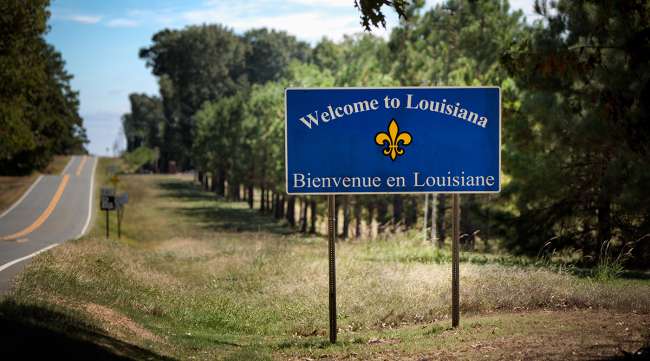Louisiana Voters OK Measure to Tighten Transportation Spending

Louisiana officials agree that the state’s roads need fixing. Beyond that, though, they can’t seem to agree on what to do about it. But they did make some progress earlier this month toward a solution when the state’s voters approved a constitutional amendment to safeguard any money raised by new gas taxes.
Not that there will be any new gas tax revenues for the foreseeable future. Legislative attempts to raise the state’s 20-cent-per-gallon gasoline tax, which hasn’t changed in 28 years, haven’t been successful. But the public’s support of Amendment 3 at least removes one of the main arguments against raising that tax.
“A couple of things are exceedingly clear. The debate about raising gasoline taxes to meet critical infrastructure needs is not going away, and there will likely be no change in those taxes unless this amendment, or something like it, is approved by the voters,” wrote the Council for a Better Louisiana, which supported the measure, before the vote.
Finding new money for transportation has been on the to-do list for Louisiana lawmakers for years, but plans to shore up that funding have repeatedly faltered at the capitol. That leaves the state’s $10 billion wish list of new projects, like building a new bridge over the Mississippi River in Baton Rouge or extending an interstate highway to New Orleans, with no clear way forward. Meanwhile the $13.1 billion backlog of everyday maintenance grows as well.
A task force appointed last year by Gov. John Bel Edwards concluded that the state needed an injection of $700 million a year to meet growing needs. The task force didn’t explicitly say how that money should be raised, but noted that a hike in the gas tax would be the simplest solution. Raising that much money solely through the gas tax, however, would add another 23 cents a gallon — more than double the existing state rate.
Since the task force — and the governor — declined to propose a way to raise the money, that task fell to the state legislature. A road funding bill there died in the House without receiving a floor vote. The state’s finances have been strained in recent years, repeatedly forcing the legislature to make mid-year cuts. Tax increases like the gas tax hike can be politically hard to pass in Louisiana’s Republican-controlled legislature.
What did pass, though, was the proposed constitutional amendment that voters adopted earlier this month. The change would further restrict how gas tax money could be spent. Louisiana voters already approved a “lockbox” amendment in 1990 that guaranteed that gas tax revenues would only be spent on transportation projects, but lawmakers routinely used part of that money to pay for transportation employee salaries and the state highway patrol.
Under Edwards’ predecessor, Gov. Bobby Jindal, nearly a tenth of the annual gas tax revenue went to pay for the Louisiana State Police. That sparked an uproar, and in recent years, lawmakers have curtailed that practice. But many complained that the diversions meant that there was “not much trust in the trust fund,” according to the Public Affairs Research Council of Louisiana.
Amendment 3 spells out that any new money generated by raising the gas tax would be directed to a new “sub-fund” of the trust fund, which could not be used to pay for employee salaries or benefits, such as retirement costs. But the amendment does not prevent lawmakers from using that money to pay for the state police.
Still, the measure could improve the chances of future gas tax hikes passing. The legislation that stalled this year, in fact, explicitly stated it would only take effect if a ballot measure like Amendment 3 passed.
With the new restrictions, Louisiana joins a number of states that have imposed restrictions on transportation funds through ballot measures in recent years.
Thirty states have constitutional restrictions on how the revenues in transportation funds can be spent, according to the Council of State Governments. Several states, including Illinois, Maryland and Wisconsin added those restrictions since 2014. New Jersey also expanded the scope of its constitutional protections last year.
Distributed by Tribune Content Agency, LLC




